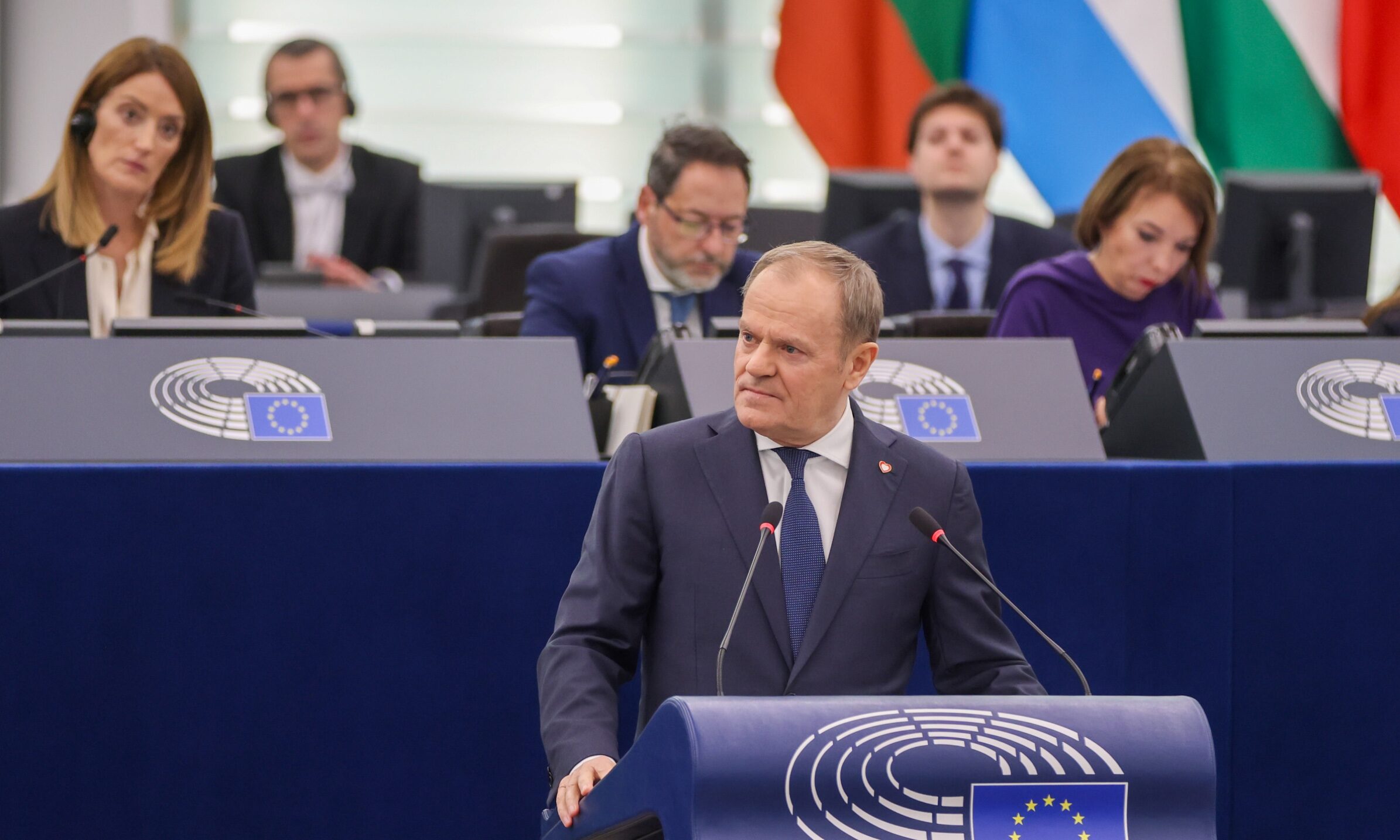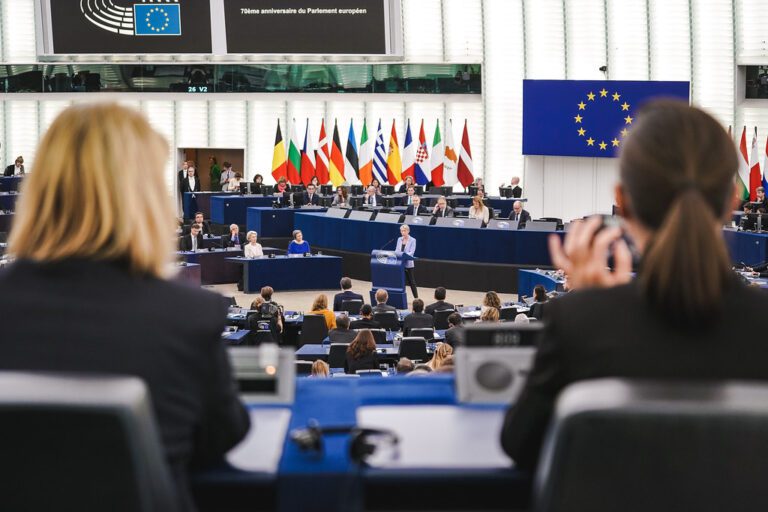
This article is based on the research paper “Red Flags or Economic Gains? The Reality of Chinese FDI in Poland” by Joanna Nawrotkiewicz, published by the Association for International Affairs (AMO) in April 2025.
As Poland continues its presidency of the Council of the EU under the slogan “Security, Europe!”, it faces pressing questions about what its vision of security truly entails. So far, Warsaw has put most of its energy into military and border protection. But there is another layer of security that gets far less attention – the long-term risks of foreign control over strategic parts of the economy. And often, it is not Polish institutions sounding the alarm, but its allies.
One telling example is the case of Hutchison Ports in Poland. Global attention was recently drawn to BlackRock’s potential acquisition of Hong Kong-based Hutchison’s assets in 23 countries. What began as a US-led effort – initiated by Donald Trump – to secure American interests in the Panama Canal, has now created a domino effect reaching the port of Gdynia on Poland’s Baltic coast.
If the deal goes through, the Gdynia terminal – currently leased long-term by Hutchison Ports – could soon fall under American control. For Polish authorities, this presents a convenient solution to a long-standing and uncomfortable situation that had largely been ignored. In some ways, it feels like a geopolitical plot twist – almost too good to be true.
Hutchison’s presence at Gdynia’s so-called “Chinese quay” has, for nearly two decades, symbolized Poland’s former enthusiasm for Chinese capital. When the company first acquired the lease in 2005, few questioned the implications of ceding control over a key logistics hub to an operator with ties to Beijing. Back then, Warsaw viewed Chinese foreign direct investment (FDI) as a critical pathway to modernization and integration with global supply chains. Two decades later, both the world and Warsaw’s approach have changed.
From FDI Hopes to Security Headaches
Poland’s initial openness to Chinese FDI was grounded in the belief that capital from Beijing would bring modernization, jobs, technological know-how, and access to the vast Chinese market. Hutchison’s terminal in Gdynia was emblematic of that vision, as were high-profile investments like Guangxi Liugong’s 2013 acquisition of Huta Stalowa Wola’s construction machinery division. Back then, these deals were celebrated as milestones in Poland’s post-EU accession economic story.
But while Poland was once a willing partner in China’s “Go Global” strategy, its outlook today is far more cautious. As concerns grow over critical infrastructure, technology transfer, and economic dependency, Chinese FDI is increasingly seen through a security lens. Russia’s invasion of Ukraine has only accelerated this shift, highlighting the risks of Chinese control over strategic assets. Still, despite growing awareness, Poland’s actual response to Chinese investment has often been reactive, inconsistent, and shaped by external pressure.
Warnings from the Outside
Time and again, it has been Poland’s allies – particularly the United States – who have sounded the alarm. The case of the Gdynia port terminal is a telling example. For years, Hutchison quietly operated under a long-term lease in an area of strategic importance to NATO logistics and Polish defence. In 2023, a poorly drafted law risked converting its perpetual land-use rights into full ownership, and it was only after a direct warning from the US ambassador that the issue gained traction in Warsaw.
Then came the 2024 incident, when Hutchison unexpectedly blocked an American military vessel from docking at its terminal. The standoff delayed the delivery of American and NATO military aid for Ukraine, raising eyebrows in Warsaw and Washington alike. Polish authorities quickly reclassified the terminal as critical infrastructure – bringing it under tighter scrutiny – but only after the crisis had already unfolded.
The pattern shows up elsewhere too. Huawei has long been a major player in Poland’s telecommunications sector, with its gear making up around 60 percent of the country’s 4G networks. Yet serious efforts to restrict the company’s role in the 5G rollout only began after US pressure in 2019. Even then, implementation has lagged. A draft cybersecurity law introduced the same year has still not passed, and in March 2025, Poland publicly declined the European Commission’s call to ban or limit Huawei following a corruption scandal in Brussels.
Mixed signals have also emerged in the case of Nuctech. Despite being linked to China’s military-industrial complex and its equipment banned in the US, Canada, and Lithuania – not to mention a recent EU raid on its offices in Poland and the Netherlands over alleged subsidies – the company’s X-ray scanners are still widely used in Polish ports, airports, and government buildings. As recently as 2022, some members of the Polish Parliament appeared unaware of the scale of the risk. Although Warsaw Chopin Airport finally began removing Nuctech devices in 2024, new installations have continued at other sites, including Lublin airport.
Not Much Investment, Still Many Questions
Compared to other European countries, Chinese FDI in Poland remains modest. Yet even this limited engagement has raised uncomfortable questions about oversight, dependency, and national priorities. The debate often swings between extremes: alarmist warnings about creeping influence and hopeful optimism about economic modernization. Reality lies somewhere in between – and the lack of a clear policy direction is part of the problem.
Poland has yet to define its stance on Chinese capital. Should it welcome investment in areas like tech or electromobility, even if it carries strategic risks? Or should it reduce exposure altogether in the name of resilience? Chinese battery manufacturers, for example, are eyeing Poland as a hub in the European automotive supply chain. This could modernize the sector and create jobs – but without clear priorities and safeguards, Poland risks falling behind strategically and economically, especially as Hungary and Slovakia position themselves as better prepared and more welcoming.
The 2025 EU Council presidency gave Warsaw a platform to lead on these issues – especially as Europe rethinks de-risking and industrial policy. But so far, Poland’s focus has remained on traditional defence. If it wants to play a meaningful role in shaping European security, it must look beyond tanks and troops. That means building institutions to monitor foreign investment, coordinate across agencies, and respond proactively – not just under foreign pressure.
The BlackRock deal over Hutchison’s holdings – if finalized – may conveniently solve one case. But it will not fix the broader institutional vacuum that allowed such vulnerabilities to persist for nearly two decades. Economic security is not just about China. It is about the kind of state Poland wants to be: proactive or reactive, self-determining or dependent. As its EU presidency slowly draws to a close, the real test is whether Poland will carry this conversation forward – or, once again, wait for someone else to start it.
Written by
Joanna Nawrotkiewicz
nawrotkiewiczjJoanna Nawrotkiewicz is a Research Fellow at the Centre for Asian Affairs, Łódz University, Researcher at the Jagiellonian University, and an Expert for the CEE Digital Democracy Watch. She graduated from sinology and law at the MISH College of the University of Warsaw.


